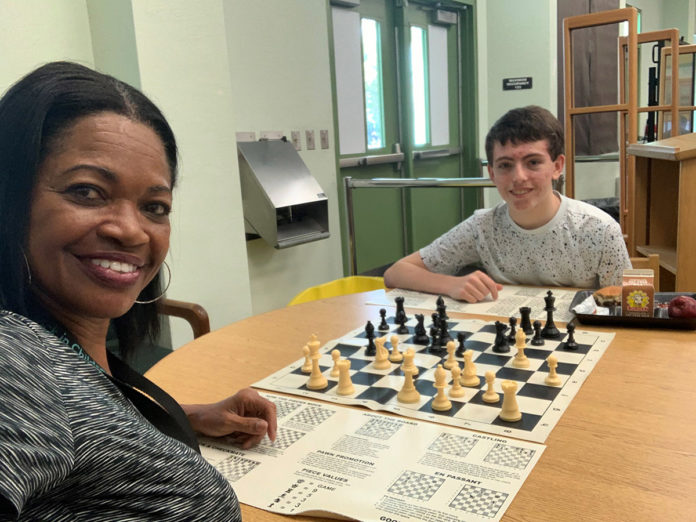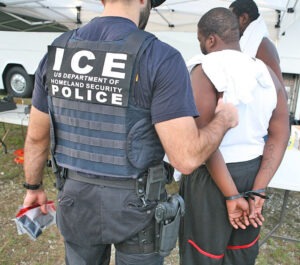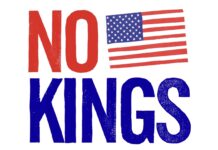Chuck Licis-Masson, a Key West local, has been the executive director of the Monroe County Education Foundation since 2012. His passion for not only the mentees, but also the mentors and Take Stock coaches, is evident. He keeps the big picture in mind as he works toward helping mentees achieve their goals and dreams.
The Weekly sat down with Licis-Masson to learn more about Take Stock, what mentors do and the impact on Keys students.
One of the biggest questions I get asked regarding being a mentor is what a mentor is not. A mentor is not a tutor or an ATM providing funds or a ride like an Uber driver driving the Take Stock scholar around from event to event or home to school.
A mentor is a kind caring adult, could be someone who’s working or retired, may or may not have completed college, but is interested in helping a student through middle school and high school via weekly mentor meetings that only last about 30 to 45 minutes.
Mentors help the students learn self-advocacy skills, how to navigate school, classes, responsibilities as they increase from year to year in terms of academics, perhaps job responsibilities, personal responsibilities and how to interact with people positively. In addition, they are instrumental in public speaking, where they help the students come out of their shell if they are shy and reluctant to talk to adults. Through the weekly practice mentor sessions, our students tend to become more confident and self-assured. Also, being an active listener to the student, asking a couple of questions and then allowing the students to run with those questions and talk about their life, goals and where they would like to go.
Some essential skills a mentor can share with a mentee are self-confidence and presenting oneself, making eye contact with the person, speaking directly to the person. And this helps not only with their classes and job interviews, but also when they have a scholarship or college interview. Then also working with different teachers and individuals when they do head off to college.
Another very important skill is learning time management and how to handle and juggle responsibilities. And those responsibilities as they become a young adult leaving high school and going into college.
Then being an active listener. So, learning how to listen and participate in the conversation, formulate one’s own opinions and back them up — then supporting those opinions. You can have an opinion on one thing or another, but how do you support your opinion?


A common challenge a mentee struggles with can vary from student to student. Some students struggle with academics and find some of the coursework challenging. We push our students to continuously raise the bar and strive towards advanced placement courses and do enrollment courses when possible—and doing more than they feel comfortable doing in some cases.
It’s about stretching their limits and learning how to do those challenges. Our mentors and coaches help the students to ensure they’re not out of their realm. They were placed in a course for a reason based on test scores and previous accomplishments. They can do the work and learn how to navigate it while having a support network because they will experience it in college. They will have to figure that out on their own and learn how to meet those challenges, maintain the course work and earn the grades.
As they grow older, handling how to take on jobs and learn how to balance work life with academic life, athletics, and home. How do you enjoy all of that and ensure that there’s enough time for life’s necessities?
Some of my favorite mentee success stories are when we’d take our students on college tours. We would make it a multi-day trip. It’s incredible seeing some of our quiet, reserved mentees open up after meeting peers from the other high schools on the trip. They come into their own, and it helps them come out of their shell.
They have the opportunity to meet other Take Stock high schoolers and also alums. For the first time, they can envision themselves on that college campus as a student.
The other side of the coin is seeing the accomplishments of a mentee when they’re in college and earning a degree. And then it comes back, and they’re happy and proud of what they succeeded in doing, earning the degree and entering a career of their choice. Overall, finding that happiness and success always warms my heart.
The ultimate win is when the student applies and is accepted to several universities and then chooses.
I am so proud to be part of the Take Stock in Children program because it allows me the opportunity to help students succeed and strive for opportunities that may not otherwise be there for them. My history is in teaching. I’ve been a teacher before I was an administrator, and when I was an assistant head of administration at this school in Saint Louis, that was very rewarding, but at the same time, there are many challenges. In this particular role that I’m in, I enjoy working with the students, supporting a fantastic team of coaches who work directly with the students and the mentors, and seeing the progression, the journey, from contract signing to graduation.
Interested in making an impact and becoming a mentor? Take Stock is accepting applications for mentors who are passionate about helping a young adult on their journey to college. Visit monroecountyedfound.com for more information and an application.

























